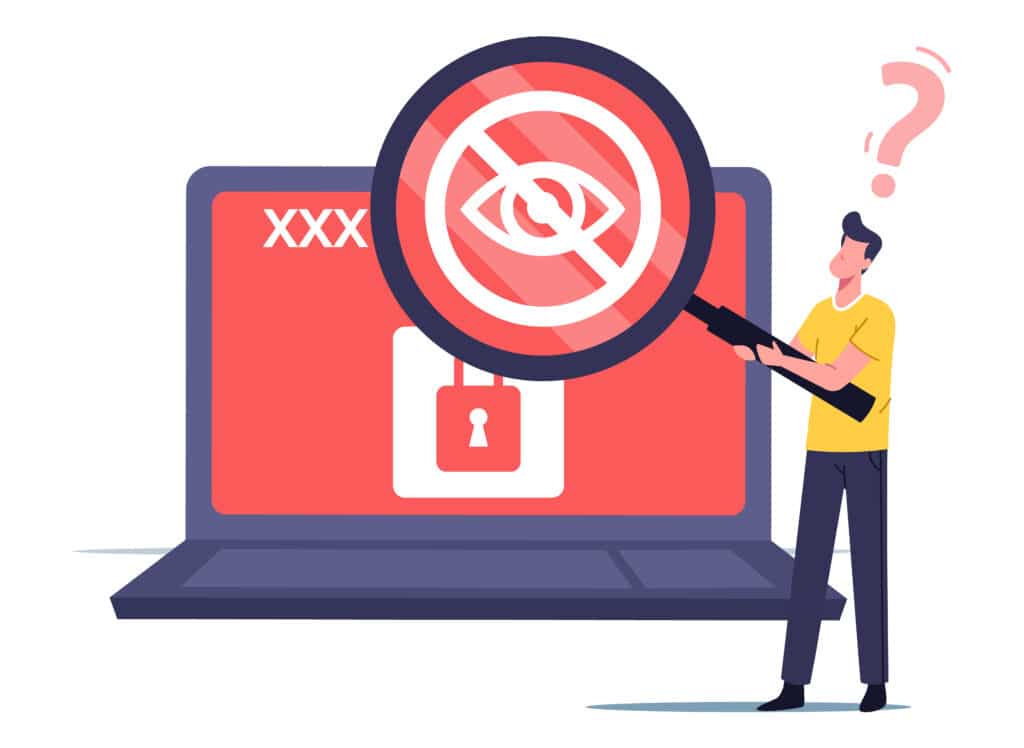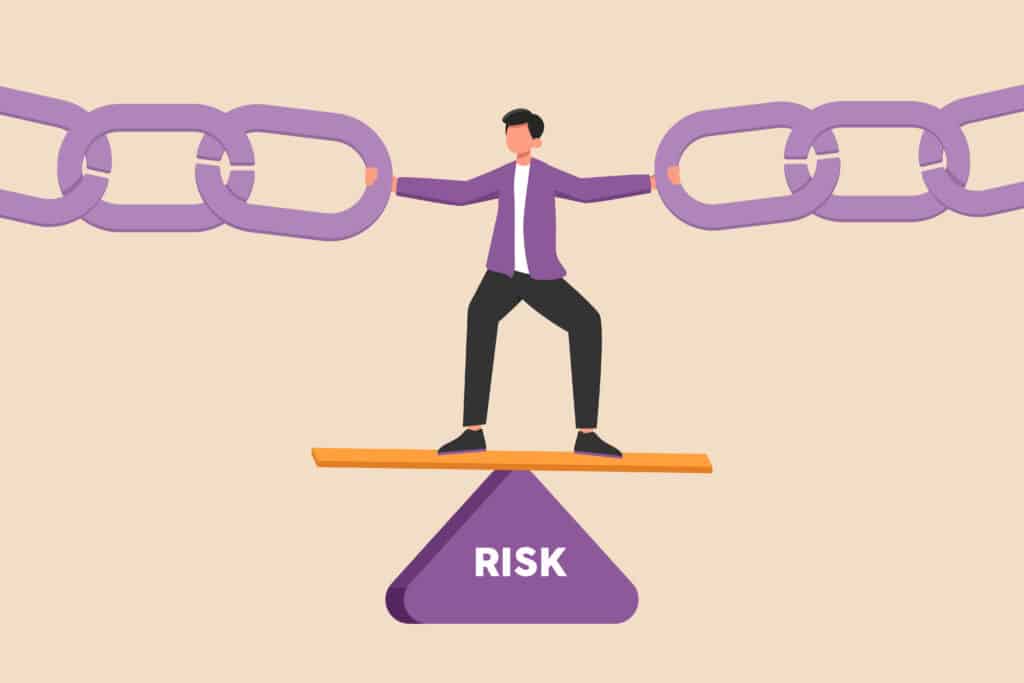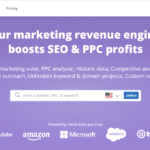
In the vast landscape of website optimization, backlinks are often hailed as the building blocks of success. Like a symphony of interconnected pathways, they guide search engines to your virtual doorstep.
But can these seemingly magical links ever be detrimental to your online presence? This article delves deep into the intricate world of backlinks, unraveling their potential pitfalls and shedding light on the elusive realm of bad backlinks.
Prepare to navigate the treacherous waters of negative SEO and discover how to safeguard your website from its pernicious effects.
Key Takeaways
– High-quality and relevant backlinks are important for boosting search rankings and showing trustworthiness to search engines.
– Researching and reaching out to potential link sources can help identify reputable websites with a strong online presence and relevant content for collaboration or guest blogging opportunities.
– Monitoring and managing the backlink profile is crucial to ensure a clean and trustworthy profile while disavowing low-quality or spammy links if necessary.
– Low-quality or irrelevant backlinks can have a negative impact on a website’s ranking and may result in penalties or deindexing, so maintaining a clean and trustworthy backlink profile is essential.
Understanding the Role of Backlinks in SEO
Understanding the role of backlinks in SEO is crucial for improving website rankings. Backlinks are hyperlinks from other websites that direct users to your site, and they play a significant role in search engine optimization (SEO).
While backlinks can be beneficial for boosting your website’s visibility and credibility, it is essential to be aware of the potential negative impact they can have.
Negative backlinks, also known as harmful or toxic backlinks, are links from low-quality or spammy websites which should be removed. Engaging in bad backlink practices such as buying links or participating in link schemes can result in penalties from search engines.
These penalties may lower your website’s ranking or even lead to its removal from search engine results altogether.
Unnatural backlink risks should not be taken lightly. Search engines like Google have become more sophisticated at identifying unnatural linking patterns and penalizing sites that engage in them.
The negative impact of bad backlinks goes beyond just SEO rankings; it can harm your online reputation and user trust as well.
To avoid the dangers of bad backlinks, it is important to focus on building high-quality and relevant links from reputable sources.
Regularly monitoring your link profile and disavowing any harmful links can help protect your website from potential penalties and maintain a healthy online presence.
Differentiating between Good and Bad Backlinks
Identifying the difference between beneficial and detrimental backlinks can be challenging for your site. It is crucial to understand that not all backlinks are created equal.
While good backlinks can significantly improve your website’s search engine rankings, bad backlinks can have severe consequences for your SEO efforts.
To help you differentiate between good and bad backlinks, let’s take a closer look at their characteristics:
| Good Backlinks | Bad Backlinks |
| High-quality websites linking to yours | Link spamming from low-quality or irrelevant sites |
| Relevant anchor texts | Excessive use of keyword-rich anchor texts |
| Organic link growth over time | Sudden influx of unnatural links |
When it comes to assessing the quality of backlinks, it’s important to consider the following factors:
- Relevance: Are the linking websites related to your industry or content?
- Authority: Do the linking sites have a high domain authority?
- Natural Growth: Has the number of backlinks increased gradually over time?
On the other hand, harmful practices such as link spamming, excessive use of keyword-rich anchor texts, and acquiring unnatural links can lead to penalties from Google.
These penalties can negatively impact your website’s visibility in search results. In conclusion, focusing on quality rather than quantity when it comes to building backlinks is essential for maintaining a healthy SEO strategy.
Negative SEO and the Risks of Spammy Backlinks

Negative SEO can pose serious risks to your site’s search engine rankings and online reputation, especially when spammy backlinks are involved.
Link spamming refers to the practice of creating low-quality or irrelevant backlinks in an attempt to manipulate search engine rankings.
While it may seem tempting to build a large number of backlinks quickly, doing so can have severe consequences for your website.
To mitigate these risks, it is essential to conduct a thorough backlink audit and cleanup. This involves analyzing your link profile health and identifying any potentially harmful or unnatural links.
Once identified, you can take appropriate action, such as removing or disavowing these links.
When evaluating the quality of backlinks, relevance, and authority are important factors to consider. Backlinks from reputable and relevant websites carry more weight in Google’s ranking algorithm.
In cases where negative SEO has occurred through spammy backlinks, there are several strategies you can employ for their removal. These include reaching out to webmasters requesting link removals or using Google’s Disavow Tool.
It is crucial to recognize that Google considers backlinks as one of its top-ranking factors. However, not all backlinks are created equal. Engaging in link spamming can result in penalties from search engines and damage your website’s visibility and credibility.
By understanding the risks associated with spammy backlinks and implementing proactive measures, you can protect your website from negative SEO and maintain a healthy online presence.
Backlink Penalties and Algorithm Updates
Backlink penalties and algorithm updates can have a significant impact on your site’s search engine rankings and online visibility.
Google algorithm updates are designed to improve the quality of search results by penalizing websites that engage in manipulative link building practices.
It is crucial to understand the link building guidelines provided by search engines to avoid falling into the trap of spammy tactics.
To ensure your backlinks are not negatively affecting your website, it is essential to follow link building best practices.
This includes focusing on acquiring high-quality backlinks from authoritative and relevant sources. You should also regularly assess the quality of your existing backlinks using a backlink quality assessment guide.
Failure to adhere to these best practices can lead to severe consequences for your website’s SEO efforts. The risks associated with improper link acquisition include being hit with penalties from search engines, which can result in a significant drop in organic traffic and rankings.
Staying up-to-date with algorithm updates is crucial as they often target specific types of manipulative link building strategies. By understanding these changes, you can proactively adjust your link building approach and avoid potential penalties.
Monitoring and Managing Your Backlink Profile
To effectively manage and monitor your site’s link profile, you should regularly assess the quality of the links you have acquired.
It is crucial to stay on top of your backlink profile to ensure that it remains healthy and beneficial for your website’s overall SEO strategy.
By monitoring your backlinks, you can identify any potentially harmful links and take appropriate action to mitigate their negative impact.
Start by utilizing tools such as Google Search Console or third-party software to analyze your backlink profile. Look for any suspicious patterns or sources that may raise red flags.
Keep an eye out for low-quality or spammy sites linking to yours, as search engines like Google can penalize websites with a poor link profile.
When assessing the quality of your backlinks, consider factors such as relevance, authority, and trustworthiness. Relevance refers to how closely related the linking site’s content is to yours, while authority indicates the credibility and popularity of the source.
Trustworthiness focuses on whether the linking site has a good reputation and follows ethical practices.
If you come across any questionable links during your analysis, it is crucial to take action promptly. This could involve reaching out to webmasters requesting removal or disavowing them through Google Search Console if negotiation fails.
Regularly monitoring and managing your backlink profile ensures that it remains in good standing with search engines’ algorithms. By proactively addressing any potential issues, you can maintain a strong link profile that positively contributes to your website’s visibility and ranking in search results.
Building High-Quality and Relevant Backlinks
One effective way to improve your site’s overall SEO strategy is by building high-quality and relevant links. When it comes to backlinks, quality matters more than quantity.
It’s not just about getting as many links as possible; it’s about getting the right links from authoritative and relevant websites.
High-quality backlinks are those that come from reputable sites with a strong online presence and good domain authority.
These links show search engines that your site is trustworthy and valuable, which can help boost your rankings in search results. Relevant backlinks are those that come from websites within the same industry or niche as yours.
These links indicate to search engines that your site is relevant to specific keywords or topics, further improving your chances of ranking higher.
To build high-quality and relevant backlinks, start by conducting thorough research on potential link sources. Look for websites that have a good reputation, high domain authority, and similar content to yours.
Reach out to these sites through email or social media and propose a collaboration or guest blogging opportunity where you can provide valuable content in exchange for a link back to your website.
Regularly monitoring and managing your backlink profile is crucial too. Keep an eye out for any low-quality or spammy links pointing to your site and disavow them if necessary.
Remember, building high-quality and relevant backlinks takes time and effort but can greatly benefit your SEO strategy in the long run.
Balancing Backlink Quantity and Quality

Finding the right balance between the quantity and quality of your links is essential for optimizing your SEO strategy. While it’s important to have a good number of backlinks pointing to your website, it is equally crucial that those links are of high quality and relevance.
Having a large quantity of low-quality or irrelevant backlinks can actually harm your website’s ranking in search engine results.
Search engines like Google consider the quality and relevance of backlinks when determining your website’s authority and credibility.
If you have too many low-quality or irrelevant backlinks, search engines may view them as spammy or manipulative tactics, which can result in penalties or even deindexing.
On the other hand, having a few high-quality and relevant backlinks can significantly boost your website’s visibility and reputation. These types of backlinks indicate to search engines that other reputable websites find value in your content, thus increasing your own authority and credibility.
To strike the right balance, focus on acquiring natural and organic backlinks from authoritative websites within your industry. Build relationships with influencers, engage in guest blogging opportunities, and create valuable content that others would naturally want to link to – all these strategies will help you achieve a healthy mix of quality and quantity in your backlink profile.
Remember, it’s not about simply accumulating as many links as possible; it’s about ensuring those links come from trustworthy sources that genuinely enhance user experience and add value to your website.
Wrapping up
It is crucial to understand that backlinks can indeed have a negative impact on your website if they are of low quality or obtained through spammy tactics. These bad backlinks can lead to penalties from search engines and hinder your site’s visibility in search results.
However, by monitoring and managing your backlink profile, you can identify and disavow any harmful links.
Focus on building high-quality and relevant backlinks to ensure the health and success of your website in the long run.
Remember, like a garden filled with beautiful flowers, a well-curated backlink profile will blossom with organic growth.
Frequently Asked Questions (FAQ)
Are all backlinks considered bad for a website’s SEO?
Not all backlinks are considered bad for a website’s SEO. In fact, high-quality and relevant backlinks can actually improve a website’s search engine optimization by increasing its authority and visibility.
Can bad backlinks lead to a decrease in organic traffic?
Yes, bad backlinks can definitely lead to a decrease in organic traffic. These low-quality links can harm your website’s SEO by causing search engines to penalize or devalue your site, resulting in lower visibility and less traffic.
Can bad backlinks result in a website being penalized by search engines?
Yes, bad backlinks can lead to search engine penalties. Search engines like Google consider backlinks as a ranking factor, and if a website has too many low-quality or spammy backlinks, it can be penalized and see a drop in search rankings.




